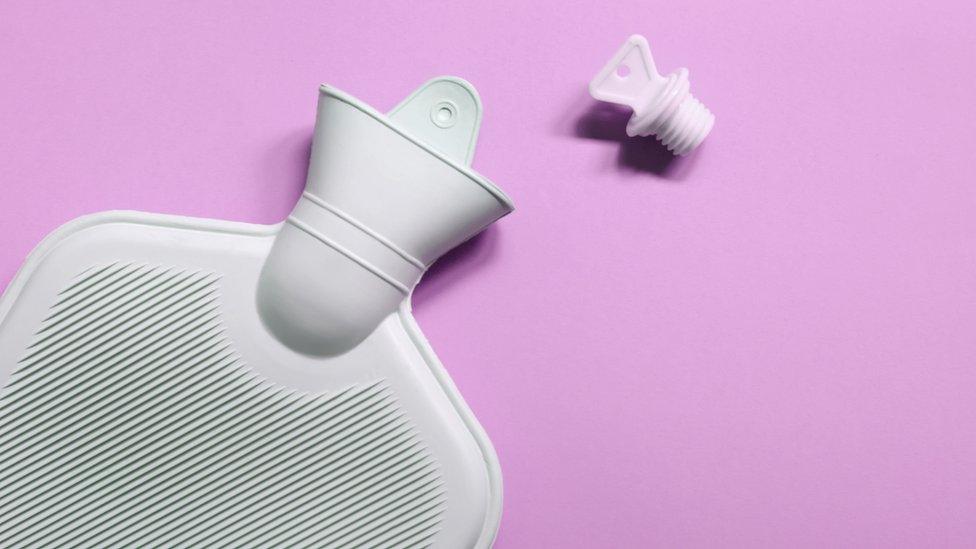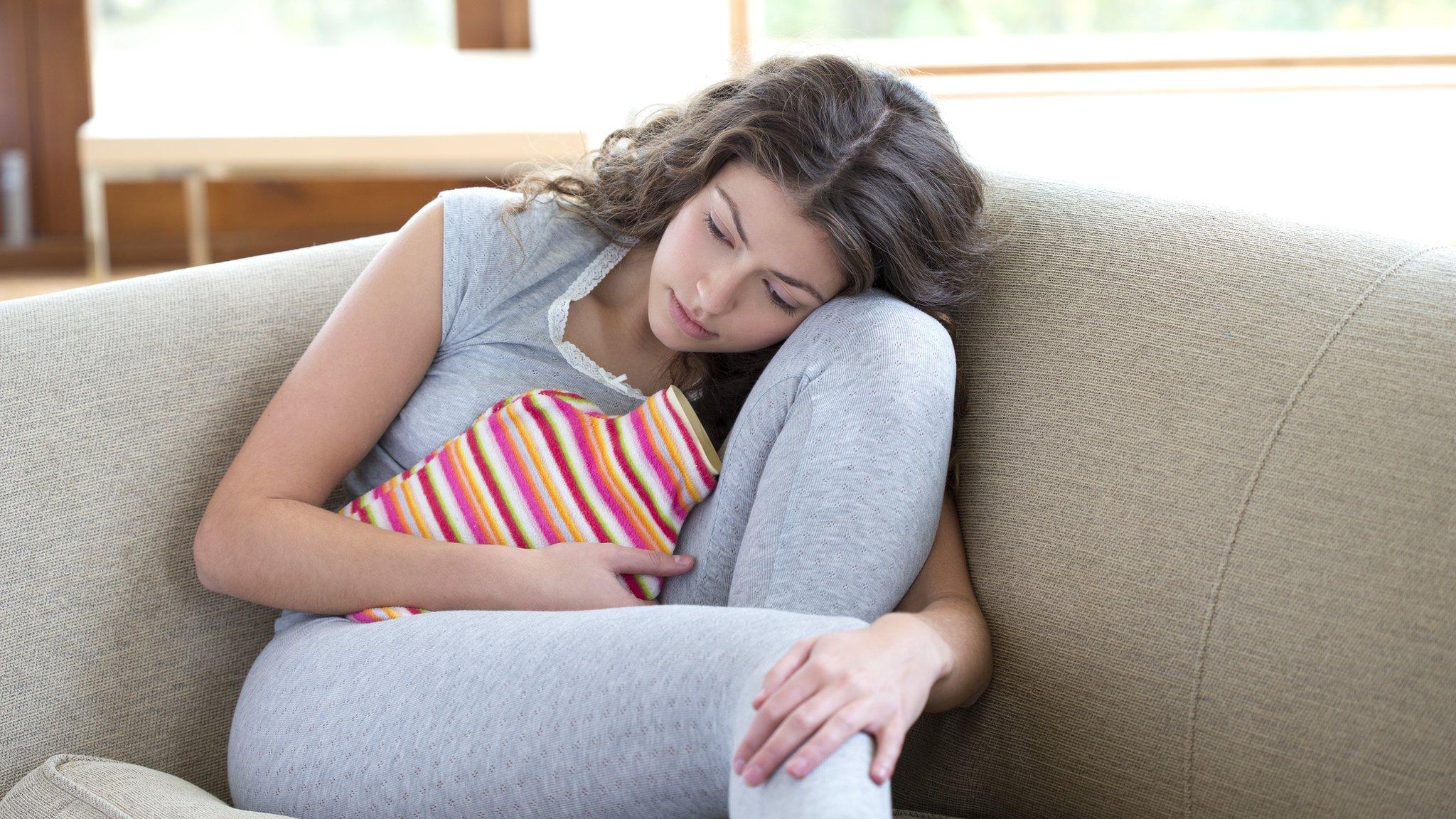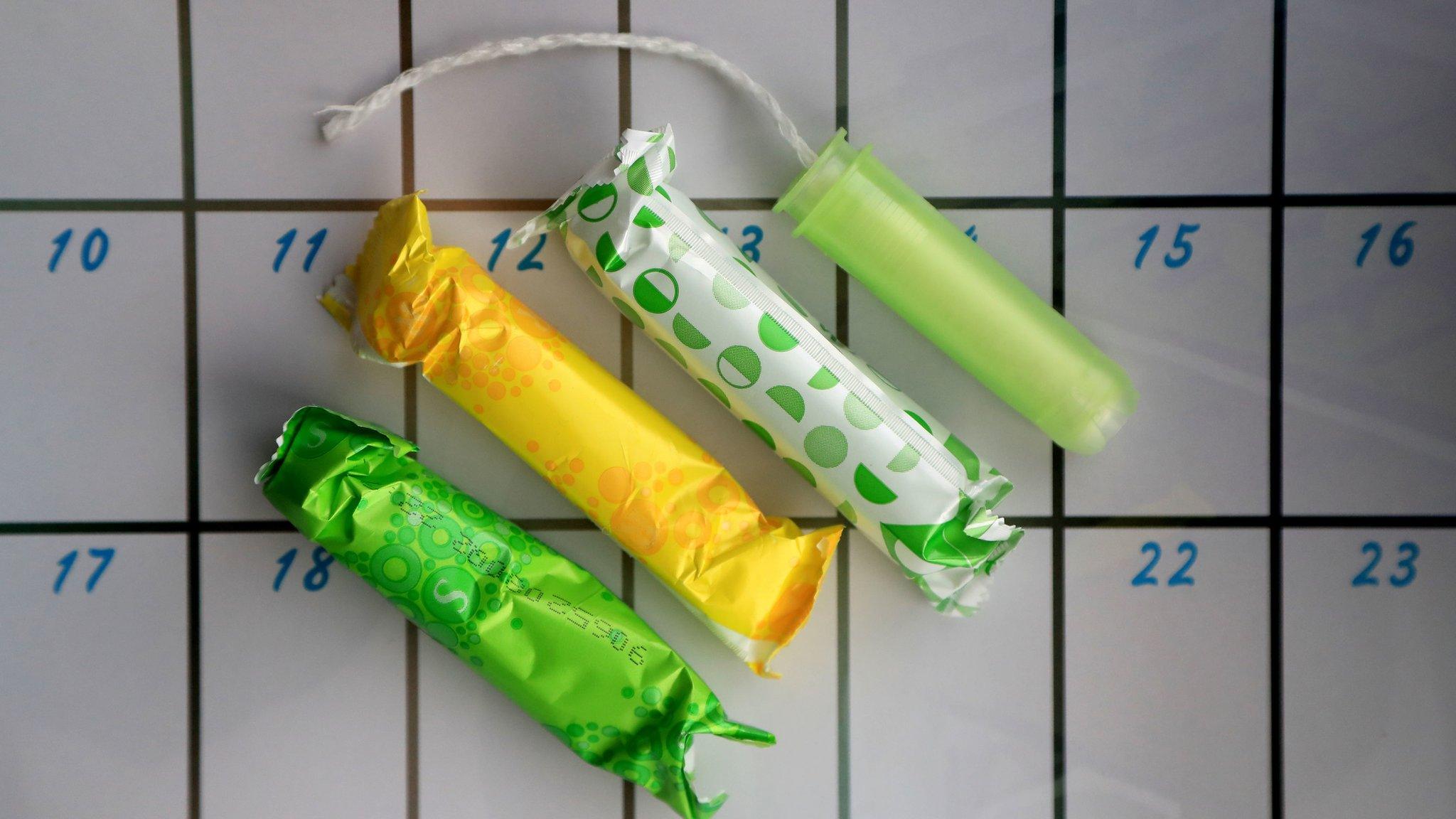UK charities call for menstrual leave for severe pain
- Published

Spain would be the first country in Europe to offer menstrual leave
UK charities have called on the government to bring in leave for those who suffer from menstrual pain.
It comes as Spanish politicians approve a new draft bill that would allow those with painful periods to have three days off a month.
Current UK employment law states workers should use sick leave if they need time off work.
Emma Cox from Endometriosis UK said: "We need to challenge the squeamishness and silence around menstrual health."
A spokesperson for period equality charity Bloody Good Period added: "We need to understand the experiences and challenges that people who menstruate face in the workplace, and then take steps to support them."
Studies estimate that four in five women experience menstrual pain.
If the Spanish legislation is passed, it will become the first European country to offer this type of leave.
Spain said the state social security system, not employers, would pay for it.
It is part of a number of reproductive health reforms in the country, including changes to abortion laws. The three-day sick leave for painful periods would be allowed with a doctor's note, and could extend to five days in extreme cases.
'Debilitating and excruciating'

Abbie left her job as a nurse due to endometriosis pain
Abbie Stapleton is a 26-year-old freelance photographer who had to leave her previous job as a nurse due to "debilitating and excruciating" period pain.
She has endometriosis, external, a condition where tissue similar to the lining of the womb grows in other places, such as the ovaries.
"When I started as a nurse I had to go on extended sick leave because the pain was so bad," she told the BBC.
"I lost out on a social life, my friendships and relationships really suffered and I was housebound most of the time - I'd also spent many days in hospital and on strong pain relief."
Abbie said having the option of menstrual leave would have been really helpful.
"I think menstrual leave is really important, especially for those who have debilitating period pain and struggle to function, such as those with endometriosis, adenomyosis, PCOS and fibroids.
"It gives people time to rest, to prioritise their health, and it would also break down the stigma about period pain."
Allow Instagram content?
This article contains content provided by Instagram. We ask for your permission before anything is loaded, as they may be using cookies and other technologies. You may want to read Meta’s Instagram cookie policy, external and privacy policy, external before accepting. To view this content choose ‘accept and continue’.
A spokesperson for Bloody Good Period told the BBC that more needs to be done by the government beyond issuing menstrual leave, including "improving the communications, culture and broader policy around periods in the workplace" and "ensuring employers have an understanding of the range of symptoms someone with painful periods might experience."
Emma Cox from Endometriosis UK added: "Anyone experiencing pain which means they need to be absent from work should expect to be listened to, believed, and receive support which is appropriate to the type and severity of symptoms they experience."
There are only a few countries around the world that offer menstrual leave, including Japan, Indonesia, South Korea and Zambia. All their laws vary widely, with the majority of countries not offering paid leave but providing extra time off outside of statutory sick leave allowances.
In Indonesia, women are allowed two days of menstrual leave a month, but that is not in addition to sick leave.
Japanese law states that those experiencing a particularly difficult menstruation period should be given time off, but it does not have to be paid leave.
In South Korea, employees are entitled to menstrual leave and those who do not take it can get additional pay, while in Taiwan three extra days a year are granted for menstruation on top of the statutory 30.
In Zambia, there's a policy called Mother's Day, which provides a legal entitlement to one day off a month for menstrual leave.
- Published12 May 2022

- Published3 December 2016

- Published25 April 2021
